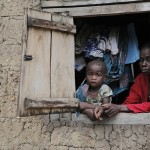‘Stigma’ is an umbrella term for the direct and indirect consequences of a number of processes that brand someone as different in ways that result in discrimination, loss of status and social exclusion. It can be short-term or evolve into a long-term and life-long issue. Who and how people are being socially labelled – plus the material, political, social and moral consequences of this labelling – often change rapidly throughout the course of an epidemic, particularly from the early stages of an emerging outbreak to an established epidemic. The first step to addressing or seeking to avoid exacerbating stigma is to identify the nature of, and factors influencing, relationships between those associated with Ebola and the rest of society. Every policy decision should be made with consideration for its immediate and long term consequences for each social group affected. Efforts to de-stigmatise Ebola should focus on improving the social visibility and the physical, economic and social wellbeing both of groups affected by stigma and, importantly, of their neighbours and wider social networks.
2014 / Ebola Response Anthropology Platform
